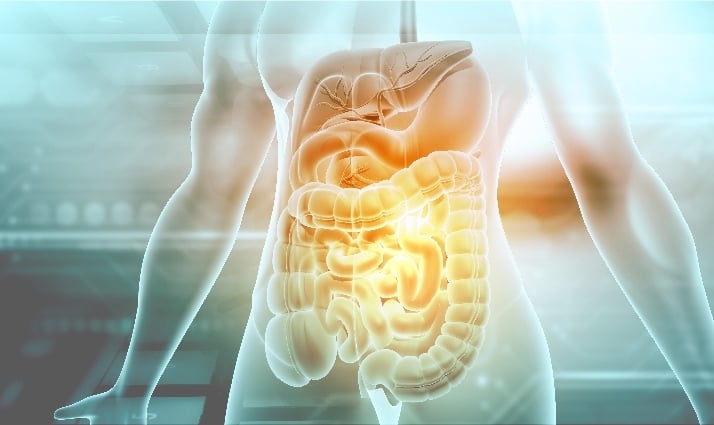Pancreatitis: Symptoms, Causes, Diagnosis, and Treatment
March 12, 2025

Pancreatitis is the inflammation of the pancreas, an organ that releases digestive enzymes to help break down food and regulate blood sugar. Pancreatitis can be either a short-term or long-term condition. The treatment you receive will depend on the severity of the condition.
Types
The two forms of pancreatitis are acute and chronic.
- Acute pancreatitis is an inflammation that lasts for a short time. There can be a range of symptoms from mild discomfort to a potentially life-threatening illness. Most people who have acute pancreatitis recover completely after getting the right treatment. In severe cases, acute pancreatitis can cause serious bleeding, serious tissue damage, infection, and cysts. Severe pancreatitis can also have serious consequences for other important organs, such as the heart, lungs, and kidneys.
- Chronic pancreatitis is a long-term condition in which inflammation occurs. It is most often seen after an episode of acute pancreatitis. Another big reason for health problems is drinking excessively for a long period of time. Pancreatic damage from high alcohol consumption may not cause symptoms for years, but then suddenly, severe pancreatitis symptoms may appear.
Causes and Risk Factors
Acute pancreatitis can be caused by a variety of things, including
- Autoimmune diseases
- Drinking lots of alcohol
- Infections
- Gallstones
- Metabolic disorders
- Surgery
- Trauma
In up to 15% of people with acute pancreatitis, the cause is still unknown.
Causes of chronic pancreatitis include:
- Cystic fibrosis
- A family history of pancreatic disorders
- Gallstones
- High triglycerides
- Prolonged use of alcohol
- Medication
In 20% to 30% of cases, the cause of chronic pancreatitis is unknown. This condition most commonly affects men in their 30s and 40s
Symptoms
The main symptom of pancreatitis is abdominal pain. Other symptoms of acute pancreatitis may include nausea and vomiting, rapid heartbeat, rapid shallow breathing, and fever.
In chronic pancreatitis, additional symptoms may involve indigestion and pain after eating, loss of appetite, and unintentional weight loss. You may also experience fatty stools that leave an oily residue in the toilet and lightheadedness due to low blood pressure. These symptoms suggest that the pancreas is beginning to lose its function.
Complications
Pancreatitis can have severe complications, including:
- Diabetes occurs when there is damage to the cells that produce insulin
- Pancreatic infection
- Renal failure
- Malnutrition occurs when your body cannot absorb enough nutrients from your food due to a deficiency in digestive enzymes.
- Pancreatic cancer
- Pancreatic necrosis
- Breathing problems occur when chemical changes in your body affect your lungs
- Pseudocysts occur when fluid collects in a blister. on the pancreas. They can become infected and burst.
Diagnosis
Your doctor will likely use a variety of tests to make a diagnosis of pancreatitis. If you have acute pancreatitis, you’ll likely have severe abdominal pain. Your level of pancreatic enzymes may have increased significantly. Ultrasound, MRI, and CT scans can all reveal different aspects of the anatomy of your pancreas, including signs of inflammation and information about the biliary and pancreatic ducts. Faecal fat testing can help determine if your stools have a higher fat content than usual.
Home Remedies
If you think you might have pancreatitis, see your doctor. In particular, if you have persistent pain in your abdomen, it’s important to get treatment. You can take steps at home to complement your treatment and help prevent pancreatitis. If you smoke or drink, try to quit smoking tobacco and drinking alcohol, which can help you heal more quickly and completely. If you need help dealing with your symptoms, your doctor may be able to provide you with support. Maintaining a moderate weight can help you avoid gallstones, a major cause of pancreatitis. Eating a balanced diet and drinking plenty of water can help you recover from and prevent pancreatitis. You may be given IV pain medication in the hospital. Some people prefer to use other techniques, such as resting, heat, or ice.
Alternative treatments may also help reduce pancreatitis pain.
You are likely to receive intravenous (IV) pain medication in the hospital. Alternative therapies may also help reduce pain from pancreatitis. If the traditional treatments your doctor has prescribed haven’t been helping, you might try yoga, relaxation exercises, or meditation. These techniques focus on slow, measured movements that may take your mind off your pain.
Prevention
There is not always a way to prevent pancreatitis, depending on the cause. With that said, there are several things you can do to reduce your risk:
- Limit alcohol use
- Stop smoking
- Maintains moderate weight
- Eat a balanced diet
- Eating high-fiber foods and avoiding sugar may help prevent diabetes and gallbladder fluid, which is the main cause of acute pancreatitis.
Frequently Asked Questions
1. Why does pancreatitis pain radiate to the back?
Pancreatitis pain often radiates to the back because the pancreas is behind the stomach and close to the spine.
2. Can pancreatitis lead to cancer?
Yes, chronic pancreatitis, a long-term inflammation of the pancreas, is associated with a higher risk of developing pancreatic cancer.







